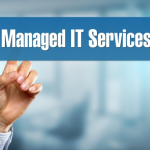EDI Compliance: The Key to Streamlining Supply Chain Processes
Electronic Data Interchange (EDI) compliance refers to the ability of a company or organization to meet the standards and guidelines. These are usually set forth by electronic data interchange protocols.
In today’s digital age, EDI compliance has become an essential aspect for businesses of all sizes and industries. It allows for seamless communication and data exchange between trading partners.
In this article, we will delve deeper into the concept of EDI compliance. So take your time to read through. That way, you can gain a better understanding of this important business process outsourcing tool.
Let’s get you started!
Table of Contents
Understand EDI Standards
Electronic data interchange standards facilitate the exchange of information between different computer systems. These standards ensure uniformity in data formats and document structures. This is regardless of the industry or country involved.
Common EDI standards include:
- ANSI X12
- UN/EDIFACT
- TRADACOMS
Each standard has its own specific format. They are used for different types of electronic data exchange. EDI compliance requires an organization to adhere to the relevant standard(s) for its business operations.
Select a Reliable EDI Solution Provider
Having the right EDI solution provider by your side is crucial to achieving compliance. These are companies that offer EDI software and services to help streamline business processes. They also provide:
- system support
- system maintenance
- system updates
When choosing an EDI solution provider, consider factors such as:
- experience
- reputation
- customer reviews
- price
- level of customer support
Make sure the EDI services are compatible with your current systems and meet your business needs.
Integrate EDI with ERP Systems
Enterprise Resource Planning (ERP) systems are vital to business operations. This is because they manage and integrate important functions such as:
- accounting
- supply chain
- human resources
Integrating EDI with ERP systems allows for seamless data exchange and automation of processes. EDI compliance ensures that the information exchanged between your company’s ERP system and those of trading partners is:
- accurate
- timely
- secure
- in the correct format
This leads to increased efficiency, improved accuracy, reduced costs, and faster order processing.
Communication with Trading Partners
The success of EDI compliance also depends on the level of communication with trading partners. It is important to establish a good relationship and open communication channels with your partners. This will ensure that everyone is aware of the standards and protocols to be followed, as well as any changes or updates.
Make sure to inform trading partners about your EDI capabilities and provide them with technical support when needed. This will help build trust and strengthen partnerships. This leads to a more streamlined supply chain.
Implement Data Validation and Quality Control
Maintaining data accuracy and data quality is key to EDI compliance. Any errors or inaccuracies can cause delays, disruptions, and added costs to your business operations. Therefore, it is important to implement data validation and quality control processes.
Data validation ensures that all the information exchanged meets the required standards and format. Quality control involves checking for any discrepancies or errors in the data before it is exchanged. This helps prevent any delays or issues arising from incorrect data.
Understand Key EDI Compliance Strategies
EDI compliance is crucial for companies looking to enhance their supply chain efficiency and optimize operations. It allows for seamless communication and data exchange between trading partners.
By following the steps outlined in this article, you can achieve EDI compliance. You can also reap the benefits of this essential business process outsourcing tool. With EDI compliance, your business will be able to thrive in today’s digital world.
Should you wish to read more, visit our blog. We’ve got more!









